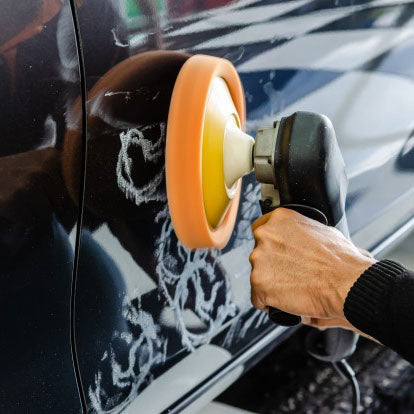In recent years, the body piercing industry in Australia has seen an increase in popularity among individuals wanting to express their personal style and explore their identity. However, with this rise in demand comes an array of piercing options and practitioners, making it essential to know how to spot a professional body piercer.
Let me discuss a guide to finding yourself he right body piercer, highlighting key factors such as qualifications, experience, studio presentation, and hygiene practices, ensuring that you can choose a safe and reputable professional for your piercing needs.
Qualifications: Is It Accredited?

One of the most critical factors to consider when selecting a body piercer is their qualifications and whether they are accredited. In Australia, there are various regulations and standards set forth by health authorities to ensure safe practices in body piercing. While regulations can vary slightly between states and territories, here are some essential guidelines to look for:
Relevant Training Courses
A professional body piercer should have completed training courses that cover critical aspects of body piercing. Look for piercers who have obtained certification from recognized institutions that focus on body art. These courses should include essential topics like anatomy, sterile procedures, and the healing process.
For Example Accredited Courses in:
11035NAT Specialist Body Piercing
SHBBSKS008 Upper Body Piercing
Membership with Professional Bodies
Check if the piercer is a member of associations like the “Body Piercing Association Australia” or “Australian Body Art Association” for example. Membership in such organizations usually indicates a commitment to professionalism and ethical practices. Being part of a professional association typically requires adherence to strict standards involving continuing education and safety protocols.
State Regulations
Understand the legal requirements in your state or territory concerning body piercing. In some areas, specific licenses or permits need to be obtained before a piercer can operate. Always ask about the piercer's licensing status and ensure compliance with local regulations.
For example:
A Health Department Council Approval certificate or an Accredited Certification in HLTINF005 Maintain Infection Control
What to Look Out for When Getting a Piercing

Consultation
A professional body piercer should offer a pre-piercing consultation. This is an opportunity for you to discuss your body piercing goals, voice any concerns, and ask questions about the procedure. An experienced piercer will take the time to explain the process, recommend suitable jewellery options, and help you pick a location that aligns with your vision.
Aftercare and Management Information
During the consultation, a qualified piercer should provide clear information on the pain level of the piercing and the expected healing process. Be cautious if a piercer cannot answer these questions satisfactorily or if they seem unprepared to discuss aftercare.
Jewellery Quality
One of the biggest safety concerns in body piercings is the quality of jewellery used. Ensure that your piercer uses high-quality, hypoallergenic materials, such as surgical stainless steel or titanium. Avoid piercers who offer lower-quality jewellery, as this could lead to a higher chance of complications or allergic reactions.
Piercer’s Experience

Experience is another crucial aspect to consider when choosing a professional body piercer. The more experience a piercer has, the more confident you can feel about the quality and safety of their work.
Portfolio of Work
Ask the piercer to provide a portfolio of their previous work. Looking at images of piercings they've completed can give you insight into their style and level of expertise. Pay attention to the cleanliness of their work and how well the piercings have healed in the photographs.
Industry Experience
Inquire about how long the piercer has been working in the industry. While less experienced piercers can be skilled, those with several years under their belt will have encountered various complications and scenarios, making them more adept at handling unusual cases.
Customer Reviews and Testimonials
Research online reviews and testimonials from previous clients. Look for feedback regarding their experiences, satisfaction with the piercer's work, and overall studio cleanliness. Social media is a valuable tool; you can often find images of the piercer's work along with feedback from clients on platforms like Instagram.
Infection Control Practices

The most critical aspect of any body piercing is the hygiene and safety protocols in place to prevent infections.
Sterilization Processes
A reputable piercer will have clear sterilization practices in place. They should use autoclaves to sterilize reusable equipment and properly dispose of single-use items, such as needles and gloves, after each piercing. If you are unsure you can ask to see sterilization records,
First Aid Training
Body piercing does come with some risks, and a professional piercer should be equipped to deal with any complications. First aid knowledge is essential in this regard.
Hand Hygiene
Cross-contamination is a significant risk during body piercing, making hand hygiene essential. Ensure that your piercer washes their hands thoroughly with antibacterial soap before putting on gloves. They should be using disposable gloves throughout the process and changing them washing hands in between.
Studio Cleanliness
Take a look around the piercing studio. A professional environment should be well-organized, sanitary, and tidy. If the studio appears unclean or poorly maintained, this raises red flags about the piercer's attention to hygiene.
Presentation of Studio

The atmosphere and presentation of the piercing studio can also speak volumes about a piercer's professionalism.
Ambiance
An inviting, comfortable, and professional atmosphere can help ease anxiety associated with the piercing process. Look for studios with calming decor, a clean aesthetic, and an overall welcoming vibe.
Equipment Availability
A high-quality body piercing studio will have modern equipment readily available. Look for well-maintained tools and materials, and don’t hesitate to ask questions about the instruments they use. A professional piercer should be more than happy to explain their equipment and sterilization methods.
Aftercare Products
A reputable studio should offer aftercare products for sale, such as saline solutions or specific cleansers designed for healing piercings. This suggests that they care about their clients’ long-term well-being and are knowledgeable about the healing process.

Finding a professional body piercer requires diligence and a keen eye for detail. By looking into the qualifications of the piercer, inquiring about their experience, inspecting hygiene practices, and considering the feel of the studio, you can significantly reduce your risk of complications and ensure a positive experience. Remember to take your time during the selection process; choosing the right body piercer is not just about getting a trendy look—it's about your safety and health.
Always trust your instincts, and when in doubt, seek a different professional. Your body deserves the best care!
- Jaz Anna



